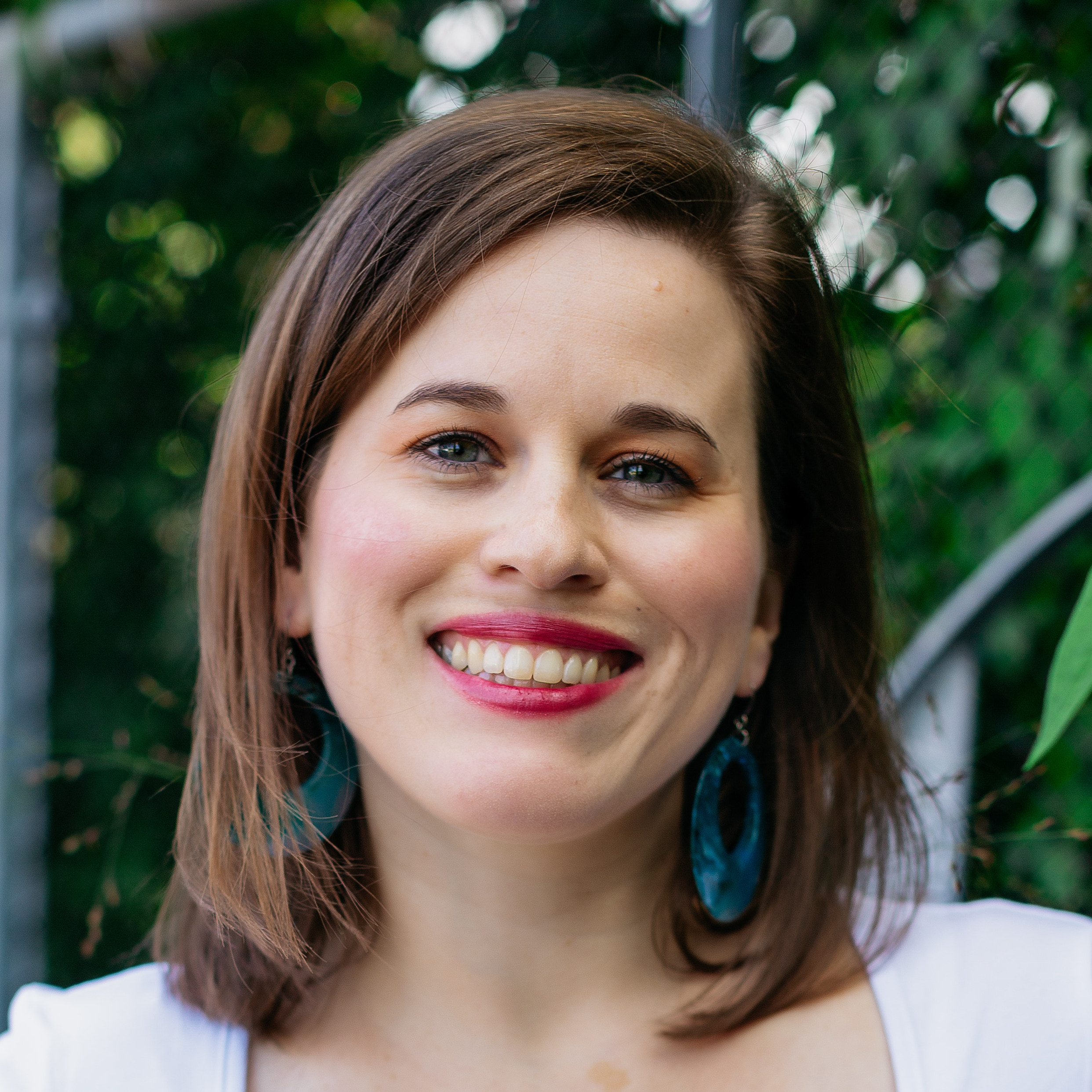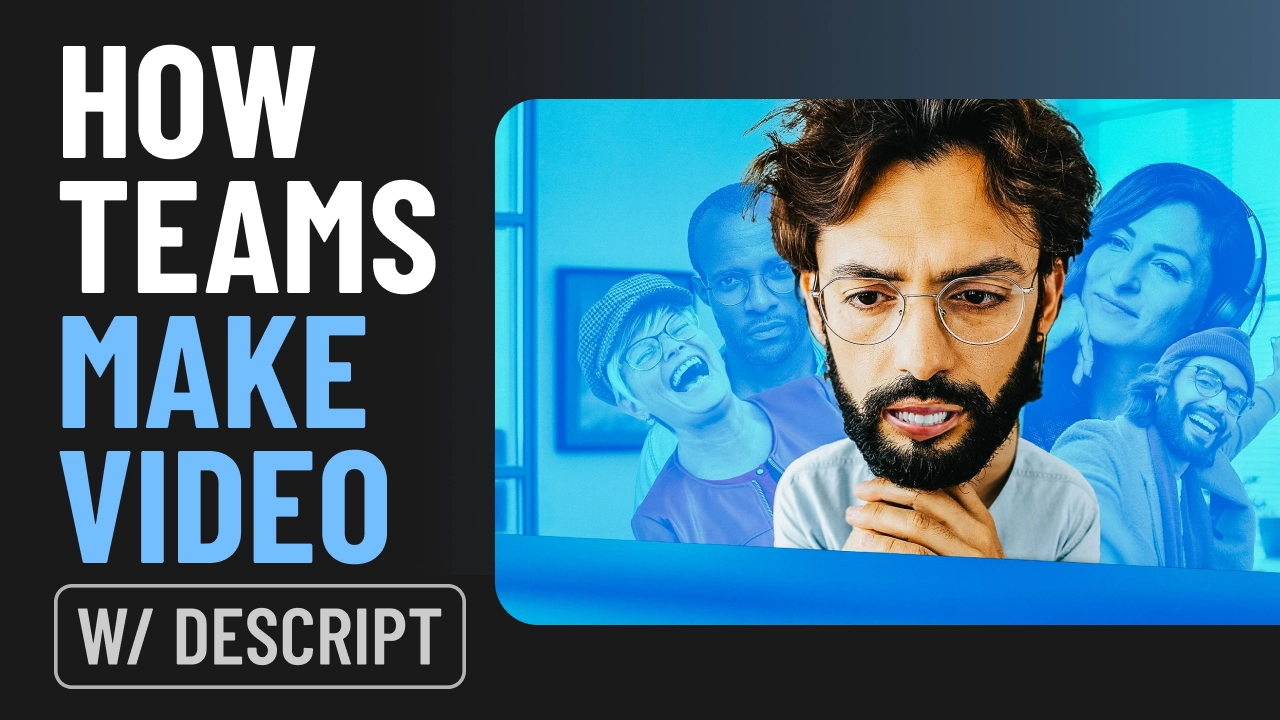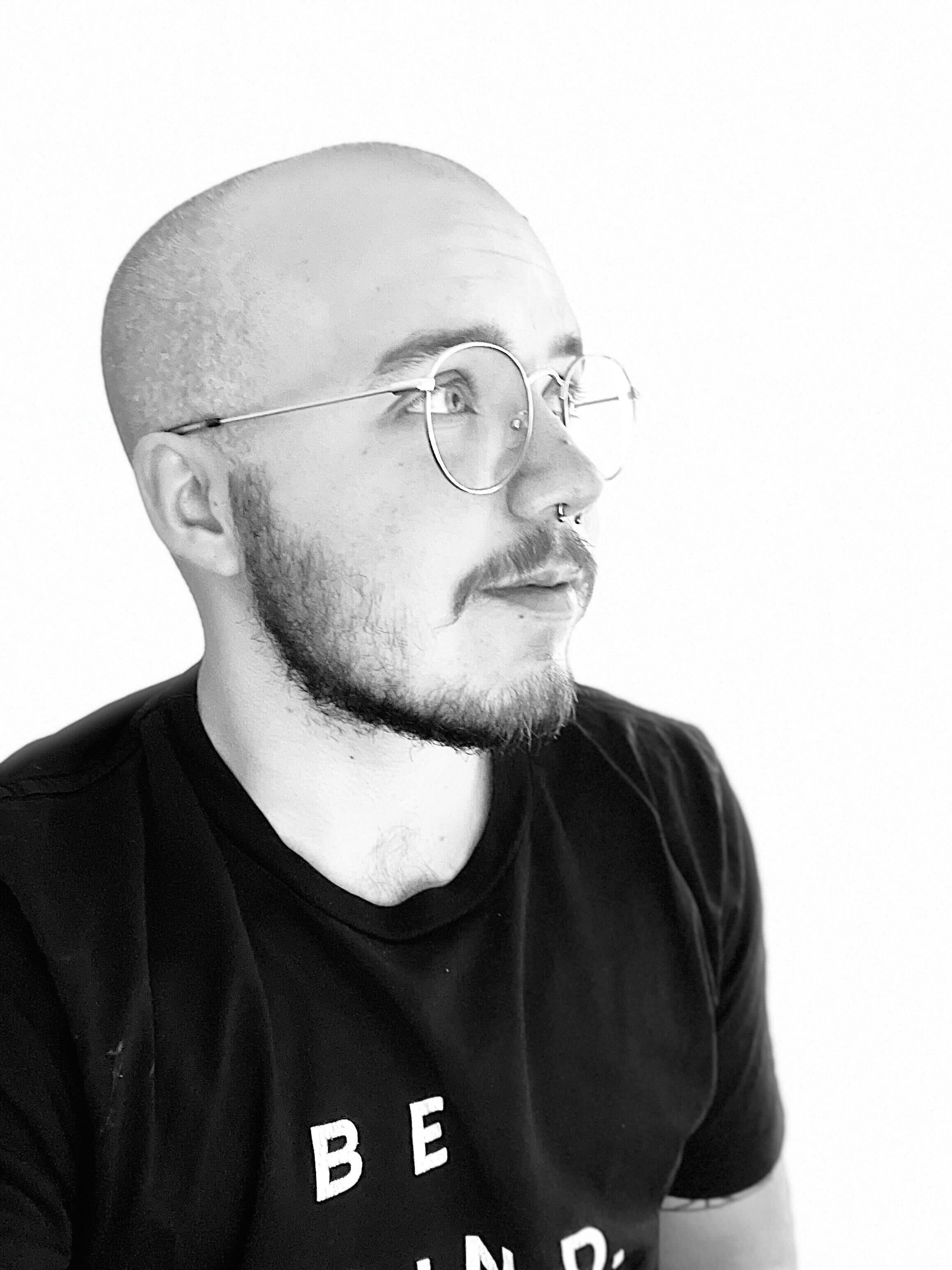When I first started my podcast, I didn’t give much thought to the idea of having a podcast co-host. I was motivated by the topics and ideas I wanted to share, so I figured out the logistics and got to business recording, editing, and producing the episodes.
But I haven’t failed to recognize that most of my favorite episodes of Talk Copy to Me are the ones that feature guest experts I’ve brought on to talk about messaging and marketing. There’s something very special about two people who are passionate about a shared topic—two people who really care about sharing their perspectives and expertise, and sharing it well, with an audience at large.
And while I may be going it alone now, I’ve always been interested in and curious about shows with co-hosts. After all, collaborative projects have more potential for failure…and for success. What makes a person want a co-host? What makes a co-host relationship succeed? What makes it fail?
Who wants a co-host?
To find out the answers to those questions, I first took to LinkedIn and conducted an informal poll of my network about whether or not they’d want a podcast co-host.

The completely unscientific results of my research show that people are definitely more curious about co-hosting than they are against it. But I was surprised by the comments on the poll, as most people reported that they would love a co-host if they were planning to launch an additional podcast.
If you’re co-host curious or sure that a second voice is what you’d want for your show, there’s a lot to know about how to approach this relationship both personally and professionally. In this article, you’ll hear from five long-time podcasters about their secrets for shared success, how to manage the co-hosting relationship, and how to protect your show’s assets just in case anything goes wrong.
1. Decide if a co-host is the right option
There are many pros and cons to having a podcast co-host, so before you even ask anyone to join you on your next venture, it’s important to decide if a co-host is the right fit for you.
Diann Wingert hosts the Driven Woman Entrepreneur podcast all on her own. But she’s still curious about other ways of doing it. “I'd love to have a co-host because I'm at my best when I'm bouncing off another brain,” she says. “But it has to be the right person.”
“Having a co-host could potentially mean more accountability, more fun, sharing the workload, emotional labor, and expense of hosting a podcast, as well as the possibility of more engaging, and entertaining content for listeners.”
But there are pitfalls, too. Diann worries about having to do someone else’s work when they drop the ball, disappointing her audience, experiencing awkwardness and resentment—basically, the risks you face with any relationship.

2. Look for co-hosts beyond your inner circle
If you’ve determined that a podcast co-host is a good addition, your next task is to go out and find someone to do the show with you.
There are many ways this might happen. Two people could, in conversation, collaboratively brainstorm the idea for a show and join forces because they’re both naturally excited to see what plays out.
But if you’re alone in your idea at the moment, you’ll need to find another person to fill the co-host role. Start by looking to your immediate network to see if there’s someone who you already have great chemistry and conversation with. Would they be interested, and do they have expertise that lends itself to your podcast idea? If you can’t find anyone in your inner circle, ask around. I’ve always managed to find the best collaborators from more distant people my inner circle have connections with.
All it takes is a quick email to a trusted friend to explain that you’d like their help in matchmaking you with the right person. Be sure to give them a brief synopsis of your idea and any characteristics you’re looking for in a co-host, be it personal qualities or areas of expertise.
And if that doesn’t work out, consider putting out a public call and allowing individuals to apply for the role of co-host if they’re interested. You can post your call for a podcast co-host on your social media channels and encourage your community to share it with theirs. You can post it in public or private podcasting communities. And, if you already started the show that you’re recruiting for, you can even announce the co-host search in the episodes and link to an application form.
Just remember to do your due diligence of interviewing candidates, asking for references and recommendations, and weighing this choice carefully. It’s important to choose someone who has similar goals for the show, but that doesn’t mean that the person has to be just like you.
3. Stay open to different perspectives
Rob Marsh, co-host of the popular and long-running podcast The Copywriter Club, thinks that it’s a great idea to work with a podcast co-host who has a different perspective than you do.
When he first started seriously considering launching a podcast, he says this is exactly how he approached choosing a co-host, and—as a long-term listener myself—I can say that the different perspectives between hosts is one of the show’s strengths. It’s clear that both Rob and his co-host Kira Hug bring a range of experiences and beliefs and thought processes to the show. That’s what makes it so dynamic and interesting to listen to.

When Ashley Hamer, now host of Taboo Science, and Gody Gough, now Executive Producer of the Crafty Brewers: Tales Behind Craft Beer podcast, first started working together on a podcast that would later become Discovery’s Curiosity Daily, they didn’t know each other at all. Cody was hired as the podcast producer by the company CEO, and Ashley expressed an interest in being involved.
“There are one million ways our pairing could have turned out terribly, but we got unbelievably lucky and ended up working together perfectly. He had the technical and audio knowhow, and taught me a ton about writing for audio and keeping the audience engaged. I had the content and fact-checking knowledge and knew which topics were worth covering and which weren't.
“We each had expertise that complemented the other and made us greater than our individual parts,” Ashley says.
“One of the best parts of working with someone who has a slightly different skill set is that it forces you to clearly articulate why you're making certain decisions, and teaching something is one of the best ways to get better at it,” Cody says. “I got better at clearly explaining the ‘why’ behind my decisions, which has helped me grow in my career.”
4. Approach it from a business perspective
If you like the person you plan on co-hosting your show with, it’s easy to think that your excitement about the idea and the faith you have in each other is enough to move the show in the right direction. That’s especially the case if you’re already friends with the person you’re starting a podcast with. But that really is a risky approach to co-hosting a podcast.
Don’t get me wrong, faith and friendship are great…but they can only take you so far.
According to Ashley, it’s important to put aside thoughts of your interpersonal relationship and focus on how the collaboration will boil down professionally.
“Friendship is not a helpful requirement for a co-host,” she says. “This is essentially a business arrangement—especially if you have plans to monetize—and just because someone is your friend doesn't mean they'll be a good business partner.
“You should look for someone who complements your skills and weaknesses, is incredibly responsible and on top of things, and, hopefully, deals with conflict well. Chemistry on the mic is also super important, but that grows with time—I think it comes secondary to those other qualities.”
And once you’ve found that person, it’s important to document your goals for the show, the tasks you’re each responsible for, and do any risk mitigation right from the start.
“I think one important thing to do before you hit record is decide who owns the content,” says Natalie Eckdahl, business coach and host of the BizChix Podcast, the longest-running podcast for women entrepreneurs.
She continues, “You are creating a partnership, and so it needs to be decided what happens if the relationship does not work out or if one party wants to do something different. A partnership agreement is important.”
5. Give and receive constructive criticism
Collaboration on a creative project can make people a bit more sensitive than your average group project. Sharing creative ideas is a vulnerable act, and it can be hard not to take it personally when someone tells you your idea is no good.
If creative feedback is new to you, one of the best ways to approach a conversation that may feel awkward is to lead with the positive, kindly explain the potential negatives, and offer your help if—and if is the keyword here—the person would like it.
If you’re critiquing your co-host’s speech tics or weird turns of phrase (we all have them!), their interviewing skills, or anything else they may feel sensitive about, approach the conversation kindly and directly. The more and more you both practice the skill of commenting on each other’s work, the easier it will be to do it, and the more you’ll come to appreciate their candor.
This is one of the reasons that Cody appreciated having a co-host. “There were many, many times when Ashley would tell me to re-read a sentence and place the emphasis on a different word, and I wasn't afraid to give her notes, either. We trusted each other to give constructive direction because we knew we were on the same team working towards the same goal. And because both of our names and faces were attached to [the podcast], the most logical course of action was to support one another and do whatever we could to make it sound as good as possible.”

Creative feedback isn’t the only way co-hosts can help you improve as a podcaster. Just observing what your co-host does well can help you sharpen your own skills, too. One of Rob’s early lessons from co-hosting came straight from an observation he made about Kira’s strengths.
“Initially, for the first ten episodes or so, I was following a question set that I had. I wasn't really listening to the guests. But I noticed that Kira was asking really good questions,” Rob says. “So I had to ask myself ‘Why? What's the difference between the questions she's asking and the way guests are answering those questions?’ And I realized that she was listening for interesting things that the guests were sharing, not just [using] the questions we had planned. If I didn’t have a co-host, I may never have learned that lesson. I might still be asking the same 20 questions or so that I had in those first 10 episodes.”
6. Remember that you’re teammates
Now, even with the best prep work and communication, you have to expect that at some points in the evolution of the podcast, there’s going to be some type of conflict between co-hosts. And that’s okay.
“The thing that always helped me find a solution to [a conflict] was to remind myself that we're on the same team,” says Ashley. “We both want the show to be the best it can be; we're just differing on what exactly will get us there. Honestly, that line of thinking has helped me in my marriage and parenting, too. It's helpful across the board!”
So if you’re thinking about co-hosting as a possibility for your podcast, the best person you can work with is someone who sees you as a teammate, who values your role and contributions, and who is going to push and encourage you as you grow and shape the podcast together.






































